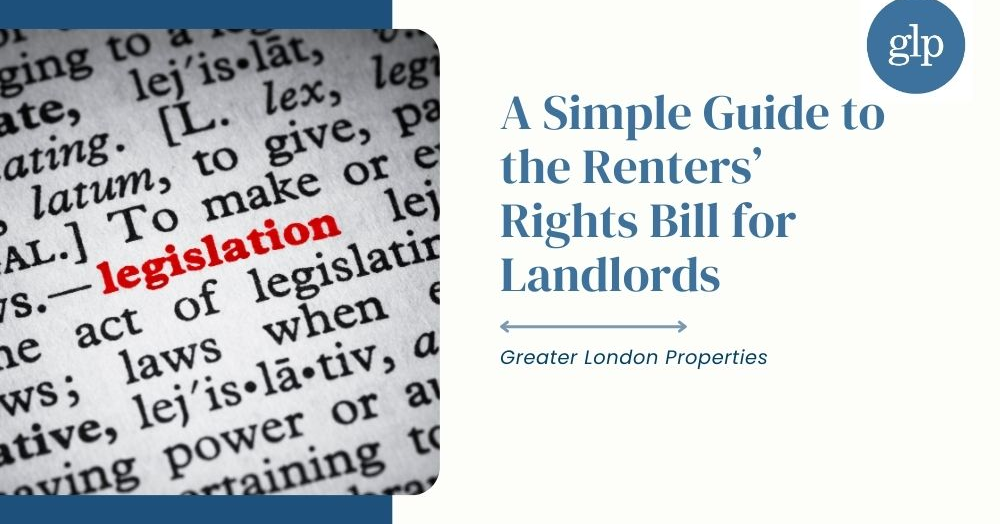Greater London Properties explains and simplifies the Renters Rights Bill which aims to reform the private rental market in England..
The Renters’ Rights Bill aims to reform the private rental market in England, providing more security for tenants and clearer regulations for landlords. This bill impacts both the 11 million renters and 2.3 million landlords in England.
The second reading is happening on the 9th October, and some of the details are subject to change, however here's what landlords need to know right now.
Key Changes
Periodic Tenancies: All tenancies will become periodic, allowing tenants to stay indefinitely unless they choose to leave or breach the tenancy agreement. The bill is also proposing that the maximum payment term will be one month.
End of Section 21 Evictions: Landlords will no longer be able to evict tenants without a valid reason (i.e., "no-fault" evictions).
Stronger Possession Grounds: Landlords can still regain possession under specific circumstances (like selling the property or moving in). However, there are stricter rules, such as providing tenants with 4 months' notice for these types of evictions.
New Rent Increase Rules: Rent increases will be limited to once a year, need to be evidence based and tenants can challenge unreasonable increases through a tribunal. Landlords must serve a section 13 notice to notify tenants of any rent increase.
Private Rented Sector Ombudsman: A new independent ombudsman will handle tenant complaints against landlords. All landlords will need to register, and the ombudsman will help resolve disputes without going to court.
Landlord Database: A new database will require landlords to register their properties and show they comply with legal standards. This will also help tenants make informed choices when selecting a rental property.
Decent Homes Standard: Landlords will need to ensure their properties meet certain quality standards. The goal is to improve living conditions for tenants and avoid the issues of substandard housing.
Pets in Rentals: Landlords must consider tenant requests for pets, but can require pet insurance to cover any potential damage caused by the animals.
Discrimination Rules: It will be illegal to discriminate against tenants based on their receipt of benefits or having children. Landlords must consider each applicant fairly and cannot refuse based on these factors.
End of Rental Bidding: The bill bans landlords from asking tenants to bid more than the advertised rent price. This ensures fairness in the rental process.
What You Should Do as a Landlord
- Stay Informed: Be aware of the new regulations and timelines for implementation. GLP will be updating the guidelines as the bills passes through the parliament, so keep an eye out of these!
- Register: When the time comes, make sure you and your property are listed on the new landlord database.
- Prepare for Periodic Tenancies: Adjust your practices to periodic tenancies, where tenants can stay until they decide to leave.
- Market: When bidding wars are 'banned', marketing your property at the highest price and allowing people to bid 'down'.
- Understand Possession Grounds: Be clear on the valid reasons to evict tenants and provide the necessary documentation.
- Follow Rent Increase Procedures: Ensure rent increases are in line with the law and provide correct notices and have comparable market evidence to support the increase.
- Engage with the Ombudsman: Be ready to participate in the new ombudsman scheme, which will help resolve disputes efficiently.
This bill is designed to create a fairer and more transparent rental system. While there are new requirements for landlords, it also provides clearer guidelines to ensure the smooth operation of renting in England.
If you would like to discuss any of the above with a member of our team we would happily help, give Megan Cutforth, our Head of Lettings a call today on
0207 113 1066.
Warm Regards
Kate Hill
Warm Regards
Greater London Properties
